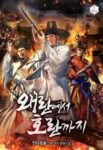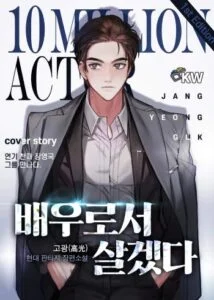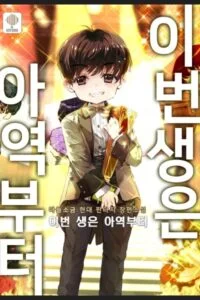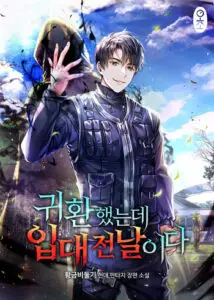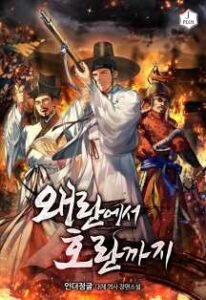A Joseon Thirsty for Firepower
The year 1583 was an incredibly challenging one for Joseon.
It faced the greatest national crisis since its founding with the Nitanggae Rebellion and the sudden invasion of Japanese pirates.
Seonjo felt the urgent need to strengthen the nation’s defense capabilities.
However, was Joseon not typically an impoverished country?
To enhance its defense, it needed not only food and clothing for its soldiers but also weapons for them to fight with.
Seonjo took an interest in the powerful firearms that had subdued the Jurchens during the Nitanggae Rebellion.
“Right State Councilor, how is the production of the Seungja Chongtong going?”
“We are melting down even the temple bells to produce the chongtong, but it is far from sufficient to arm the soldiers in the northern regions.”[1]
The Seungja Chongtong was made from a bronze alloy, and since Joseon imported copper, they were even melting down temple bells to boost production.
Yet, it was clear that there were limits to how much they could produce.
The Seungja Chongtong was more than twice the size of the existing chongtong and required a significant amount of bronze just to make one.
“Ugh, is that so?”
“Your Majesty, the arquebuses being made by the Military Supply Agency use iron as their main material, allowing for greater production.”
“But the arquebus is not a weapon whose effectiveness has been proven in war, unlike the Seungja Chongtong.”
“That is true. However, the fact that the tiger hunters are using arquebuses to capture fierce tigers proves that their power is not inferior to the Seungja Chongtong.”
“Hmm.”
Even Seonjo could not refute this point.
The tiger hunters risked their lives fighting tigers.
Before the arquebus, they had hunted tigers with spears and bows, resulting in significant casualties and low success rates.
However, as soon as the arquebus was distributed, news spread of successful tiger hunts across the eight provinces.
“It is a weapon capable of capturing even the swiftest of tigers. No matter how fast the Jurchen horses are, they cannot compare to a tiger.”
“The Right State Councilor’s argument is sound. If we cannot produce more Seungja Chongtong, we have no choice but to make arquebuses.”
Although Seonjo preferred the Seungja Chongtong, a weapon proven in battle, reality left him with no choice.
Yi I had always advocated for military expansion, and with Joseon’s food production increasing annually, his reform proposals were gaining momentum.
Yi I was convinced that gunpowder weapons would change the battlefield.
Among them, the arquebus, which could shoot farther and more accurately with less gunpowder, seemed to Yi I to have limitless potential.
“Then the issue is securing gunpowder.”
The biggest obstacle to Yi I’s reforms was gunpowder itself.
Gunpowder was composed of saltpeter, sulfur, and charcoal—with saltpeter being the key ingredient.
Saltpeter came from the soil under old eaves, known as hamto.
And to acquire this hamto, Joseon recruited soil collectors to travel the country and gather it.
This process inevitably led to conflicts among the people.
Who would be pleased if someone barged into their home and said, “Sorry, but we need to take some soil from under your eaves?”
Especially if it was a government official armed with a sense of duty.
“Indeed. The production of saltpeter, the main ingredient of gunpowder, remains far from sufficient for the increasing number of weapons.”
“Is there truly no solution?”
“I apologize, Your Majesty. Even the once plentiful sulfur reserves are now depleted.”
The depletion of sulfur reserves was due to Joseon’s complete ban on trade with Japan.
The hardliners in Joseon, upon hearing of the significant damage caused by Japanese pirates in the Ulsan region last year, immediately submitted petitions advocating for a severance of ties with Japan.
Even the moderates argued for further reducing trade with Japan, leading Seonjo to officially ban trade with Japan.
The consequences of this decision were gradually becoming apparent.
“Right State Councilor, I remember you submitting a petition in the past, warning that Joseon could be invaded by barbarians at any time. Thanks to your advice, we were able to save the people in the northern regions. However, you continue to advocate for military expansion even after the Nitanggae Rebellion. Does this not mean that the crisis in our country is not yet over?”
Yi I could only bow his head in response to Seonjo’s inquiry.
“I apologize, Your Majesty. Please forgive my disloyalty.”
Watching Yi I bow his head, Seonjo felt as if a stone had been laid on his chest.
It’s truly frustrating to see the threats of the future so clearly and yet have no way to prepare for them.
Little did Seonjo know that a problem-solver was on his way from Ulsan to relieve his frustration.
The Problem Solver
Because of his nephew, Hyeongyu had fallen out of favor with the Dongin faction.
Isolated, Hyeongyu naturally joined Yi I’s Reformist faction.[2]
He had been transferred from the Saheonbu, known for its power to bring down even flying birds, to a position in the Ministry of War due to the Dongin’s checks. [3]
Despite his complicated history and somewhat unwilling nature, he managed to become a key figure in the Reformist faction, thanks to Yi I’s favorable view of him.
As a result, both the Dongin and Seoin factions referred to him as “a bat-like fellow who knows how to hold onto a good string.”
“Your Excellency, the Right State Councillor, my nephew has arrived from Ulsan.”
“Oh! That heartless friend who hasn’t sent a single word from Ulsan for a while has finally come!”
Upon hearing that Sangseung had arrived in Hanyang, Yi I immediately headed to Hyeongyu’s house.
The sudden visit from the Right State Councilor caused a commotion in Kim Hyeongyu’s household.
“Hey, Wonshi. Are you there?”
Huh?
That voice?
I had been resting but quickly dressed and went to the door.
As expected, the owner of the voice was Yi I.
Seriously, didn’t that man have enough work to do as the Right State Councilor?
“What brings Your Excellency here at this hour?”
“Hahaha, you’ve grown so much since I last saw you. I could believe it if someone were to call you a fine young man.”
Perhaps it was due to training with Teacher or just my growth spurt, but I had grown noticeably day by day.
“And Your Excellency looks better and better.”
“Haha! Is that so? You’re probably the only one who thinks my complexion looks good.”
Wasn’t that obvious?
After all, dark circles were a basic trait for any government official of that era.
You couldn’t exactly tell a man who ought to have been lying in a coffin that he looked unwell when he was walking around alive.
“Ah, this isn’t the time for that. Did you happen to stop by Japan?”
“I did.”
“Did you bring any sulfur?”
“I filled a whole ship with it. But it seems there’s a shortage of sulfur?”
When I smiled meaningfully, Yi I nodded.
“Oh! You anticipated this situation as well. I didn’t oppose cutting off trade with Japan because I trusted you would bring sulfur.”
“The problem is, my family made a significant expenditure to bring sulfur from Japan, and I’m not sure how to dispose of it.”
“Don’t worry! The royal court is overflowing with goods collected as tribute from all over the country. Although we need to reform this tribute system eventually, for someone like you, it could mean even greater profit, wouldn’t it?”
That was true.
All the high-quality goods from across the country had to be sent to the Joseon royal court as tribute.
What was tribute?
It was a system where the best goods from the eight provinces had to be offered as taxes for the king’s use, wasn’t it?
Naturally, the finest items in Joseon were gathered at the royal court.
Even before Hanyang was raided by Japanese pirates, the Joseon royal court, which had enjoyed nearly 200 years of peace, was akin to a massive logistics warehouse in modern terms.
The implication here was that if I could select and sell goods that would be well-received in Japan, I could gain significantly more than just transporting food supplies.
What if I could secure the arquebuses that the Japanese pirates were so obsessed with?
It might even be possible to acquire hundreds of arquebuses before the Imjin War.
However, considering the need for marksmen to use these arquebuses before the war and the continuous supply of gunpowder throughout the war, it seemed a bit daunting.
But merely bringing sulfur wouldn’t earn me any credit.
If I made a mistake and got on Seonjo’s bad side, I could lose my head in an instant.
“Is there anything else His Majesty desires?”
“His Majesty is quite concerned about the rapidly increasing consumption of gunpowder in Joseon.”
“…Do you need saltpeter?”
Saltpeter, huh.
It was not that there was no way to solve this, but not immediately.
There were a few prerequisites needed to unlock this knowledge.
“Indeed. Otherwise, gunpowder from Japan wouldn’t be bad either. Even in small quantities, Japanese gunpowder itself is much stronger than Ming’s gunpowder.”
It was true that gunpowder originated from the Ming Dynasty.
However, at this moment, the country with the most powerful gunpowder was neither Ming nor Joseon, but Japan.
To make black powder, three ingredients were used: saltpeter (potassium nitrate), sulfur, and charcoal (carbon).
Among these, sulfur was actually of low importance, so adjusting the ratio of charcoal could still produce decent gunpowder.
If saltpeter—the oxidizer—was the medium that enabled the explosion, charcoal was the actual fuel of the reaction.
The quality of gunpowder was essentially determined by this fuel, the charcoal.
Most charcoal used for gunpowder was made from softwood.
Japan, being warmer than Joseon, had many high-quality softwoods growing naturally.
This meant that Japanese gunpowder was naturally stronger than Joseon’s.
Of course, I knew that Joseon later acquired Japanese gunpowder manufacturing techniques and made similar charcoal to increase explosive power.
But I couldn’t act as if I knew these facts!
“Is that so? Is it alright to share such information with someone like me?”
“Hmm, our Joseon’s gunpowder is just as strong as Japan’s.”
I suppose so.
That’s why they could create a monster like the Seungja Chongtong, which could fly up to 750 meters with just a hand cannon.
Ah, of course, the effective range of the Seungja Chongtong was about 100-150 meters, and the maximum range was 750 meters.
“As far as I know, Japan is engulfed in war, making gunpowder extremely precious. To obtain gunpowder, we would also need to offer something valuable.”
“First, report this to His Majesty and see what he desires.”
To obtain the Demon King’s items, one must meet the Demon King.
“I have no choice. I will soon go to see His Majesty.”
If I could bear the risk of being bitten by the rabid Demon King, the items dropped by him would greatly aid the hero’s journey.
“Good, you’ve thought it through. But how are the Japanese pirates faring? Are they still too busy fighting among themselves?”
“The area I visited was not the mainland but rather a region next to it called Kyushu. That area was also caught in the whirlpool of war. However, recently, a power known as the Three Powers has formed in Kyushu, and even one of those powers has collapsed. Isn’t their rush to wage war also evidence that the situation on the mainland is rapidly changing?”
“Haha, what is happening to that country! Next time, make sure to visit the mainland as well.”
“I need to verify accurate information about the mainland, so the next voyage will be to the mainland.”
Due to my existence, a variable had been created that allowed Yi I to survive.
What kind of variables had been created in Japan, I wonder?
[1] A chongtong (총통) is an early form of Korean cannon used during the Joseon dynasty. Think of it as a mix between a handheld firearm and a mini-cannon—it could shoot arrows, bullets, or even small cannonballs depending on its size.
[2] The literal name of the Yi I’s group is the “Young Scholars” faction.
[3] The Saeheonbu (사헌부) was a powerful government office during the Joseon dynasty responsible for overseeing the conduct of officials and ensuring justice.

